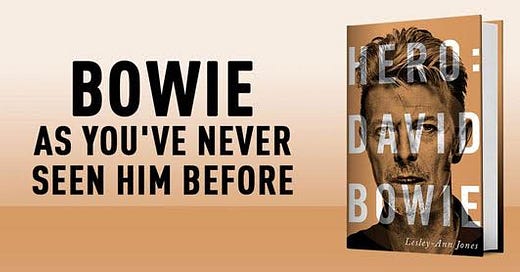The Culture Interview: Lesley-Ann Jones
Lesley-Ann Jones, 58, met David Bowie when was she was 11 and lived down the road from him and Angie in Beckenham. She went on to get a rock n'pop column for the Sun! And then the Mail on Sunday....
Lesley-Ann Jones, 58, met David Bowie when was she was 11 and lived down the road from him and Angie in Beckenham. She went on to get a rock n'pop column for the Sun! And then the Mail on Sunday. In the 80s, those were the sort of days they were - she interviewed Grace Jones on a massage table, U2 in a pool and Cyndi Lauper on a plane. Her latest book i…
Keep reading with a 7-day free trial
Subscribe to Advantages of Age to keep reading this post and get 7 days of free access to the full post archives.



